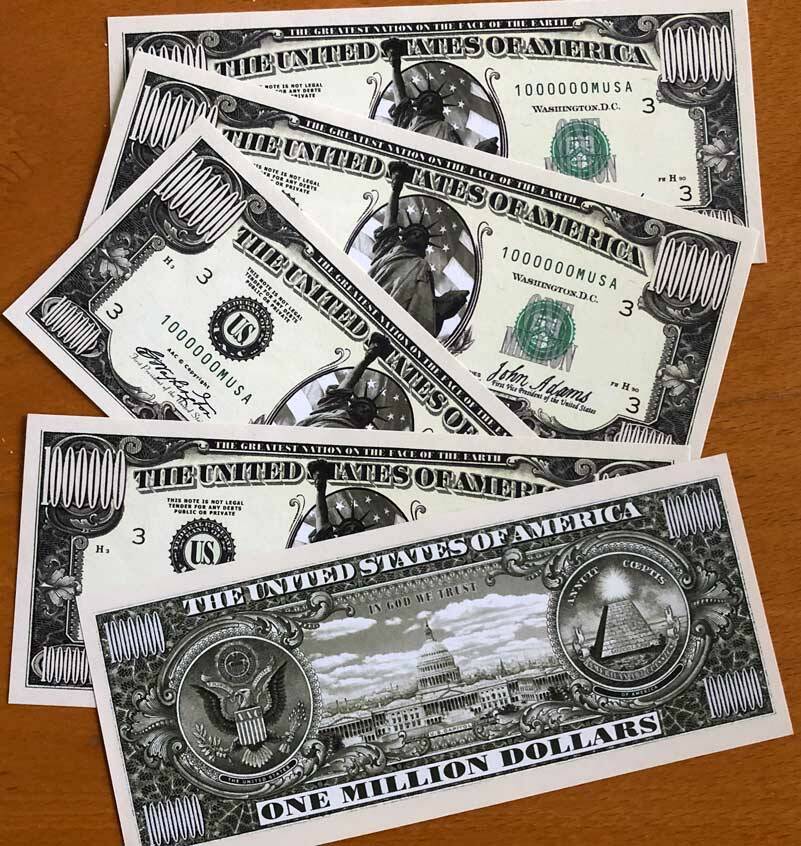By Morf Morford
Tacoma Daily Index
2022 in many ways will be a year when, for a variety of reasons, many principles and guidelines that proved true and reliable for decades, if not longer, will reveal themselves to be not terribly relevant or useful.
Here are just a few tried and (once) true financial principles you may want to reconsider.
Don’t talk about money
For many years the first commandment of virtually every workplace was the nearly divinely-ordained principle of not talking about how much you were paid.
I’ve always thought it was strange to not be allowed to talk about how much we were paid with fellow workers at the same business.
It was even grounds for dismissal at many places I’ve worked.
Talking about how much money we made or spent (on a vacation or home project for example) or anything regarding our financial situation was considered the ultimate of bad manners, right alongside conversational taboos about politics or religion. Or sex.
At any crucial juncture in any of these categories, a bit of advice from a more seasoned mentor could have made all the difference.
Learning about how others approach debt, savings, and budgeting can help you avoid making rookie mistakes, or even teach you about investing.
A timely conversation about the stock market or buying real estate could easily make a huge difference in one’s lifetime financial security.
This is the primary way wealthy families stay wealthy.
And poor families stay poor.
To put it simply, friends help friends keep their financial/relational lives in order.
Buying is better than renting
Buying is better than renting – sometimes. For some of us.
But sometimes it isn’t.
I’m partial to pre-mid-century modern houses – those craftsman/bungalow designs often with big front porches and elaborate woodwork.
But the bottom line in real estate is that you get what you pay for, and even more true is the principle that you pay for what you get.
When it comes to homes that are approaching (or have passed) the century mark, the cost, labor and stress could easily (by far) pass your expected budget.
Older homes, like older pets, cars or relatives, require more (usually far more) care than you might have anticipated.
If you are intending to stay for many years – and if your life goes anywhere near what you had planned – buying may work out for you.
But any change in career, health, relationship status, or something as basic as a major plumbing or electrical problem could easily up-end the best-laid financial investment strategies.
Renting may seem like a constant financial drain, but it is miniscule compared to paying for a new roof or having a foundation restored.
As a renter, you can cut your losses.
Or take that job across the country – or somewhere else in the world, without too many complications.
I know people who have made near-fortunes in real estate.
But I also know people who have lost it all – including their credit – in the real estate market.
Home ownership presumes continuing expected (and unexpected) financial costs, ongoing maintenance, and inconceivable levels of responsibility.
For many of us, especially those that value a good night’s sleep and mental stability, renting just might be an attractive option.
Buying in bulk saves you money
Yes, I know, most of us live in the United States of Costco where buying a crate of just about everything is standard procedure.
I love Costco, and support it on a regular basis, but do we really need massive tubs of everything in our ever more crammed pantries and cupboards?
Yes, I know, that 50-pack of toilet paper was a life saver a year or so ago, but do we really want to dedicate that much closet space to toilet paper, paper towels and Kleenex boxes?
Do we really want to tie up that much of our grocery budget on five Costco-sized packages when we could get twenty or so smaller, more usable size packages that we will actually use?
Always pay in cash
Paying in cash has some obvious advantages. One big one is that it is a tad more difficult to spend more than you have with cash.
And, for those transactions you might want to keep, ahem, confidential, cash is still king.
But you won’t earn bonus point or air miles with cash.
I have friends who pay most of their bills – including car payments and mortgage with credit cards.
They have been able to travel around the world on all of their air miles.
Credit and debit cards will never be as anonymous as cash, but the rewards programs can be fabulous.
Cancel credit cards you don’t use
It might seem obvious to cancel something you rarely use, but when it comes to credit cards, don’t do it.
Besides your prompt payment, credit card companies look for to things in your credit report; opening balance and the length of your credit history.
In this case bigger is better, and longevity will help when you need it most.
One time I had a complaint at my local bank (about over-draft fees).
I said simply, take this fee off my balance or I will close my account right now.
I had been a long-time customer and I gave them the choice of a fee today or a reliable customer for years to come.
Keep those accounts for as long as you can – especially if there are no fees – you just might need them later.
And, if you open a new account, borrow as much as you can from a friend for your initial deposit. That amount will be part of your permanent credit score.





